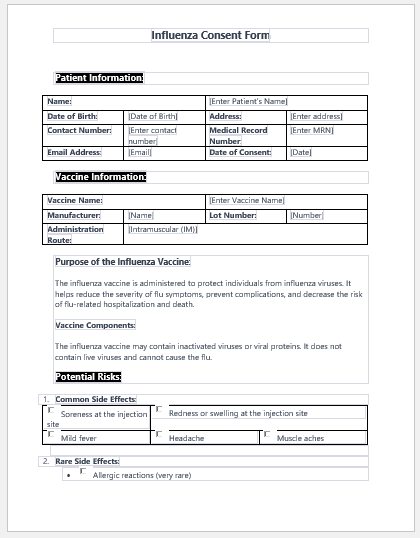What is influenza, its causes, and its symptoms?
Influenza is also known as a common cold. Influenza is an infectious disease that is caused by a virus. Influenza, or flu, is a very common illness that causes a sore throat, headache, fever, running nose, coughing, and generalized illness. These are all non-specific symptoms and almost always point toward the influenza virus. Sometimes, the symptoms last for weeks, but most of the time they are relieved in a week or two by themselves. Some of the rare symptoms of influenza include abdominal pain, diarrhea, and vomiting combined with flu-like symptoms.
Types of influenza virus
Four types of influenza viruses have been identified. They are known as A, B, C, and D. The first three types are common in human beings except for the D virus, which has not been discovered in men so far. But there are speculations that the virus can affect humans as well.
The influenza virus has recently shown a great deal of resistance, requiring proper management. It has gathered much attention in the last couple of years that the influenza vaccine has been included in the vaccination regime.
Influenza vaccine
Influenza vaccines, or flu shots, have been formulated for long-term protection against the common cold. Over the years, this disease has literally taken humankind by storm. The influenza vaccine was the need of the hour, and now everyone is advised to get the flu shots according to the immunization schedule.
This vaccine has proved to be effective against the disease and has reduced hospital visits and admissions in each age group. It has also improved the attendance of the students at schools and of the workers at their workplaces.
The WHO has advised, along with the CDC, to get the flu shot every year to stay safe from the common cold. However, the European Center for Disease Prevention and Control says that yearly vaccination is only for high-risk people, including pregnant women.
The beauty of this vaccine is that it can be given to people allergic to eggs despite being prepared from eggs. It is completely safe for pregnant women as well. The vaccine is mostly given by intramuscular injection, but nasal sprays are also available, which have really improved compliance.
Influenza vaccine consent form
Like any other medical procedure or handling, the consent form for the influenza vaccine is also mandatory. It is especially required because of the new introduction of the vaccine, and proper education is important before administering anything that is new to people.
The influenza vaccine consent form typically includes the information of the patient, which includes the name, age, and sex of the patient. It also includes any allergies or a brief past medical history. After that, the patient consents to the vaccine and allows the doctor to give him the influenza vaccine according to the regimen.
The consent form also includes the possible side effects of the vaccine, making sure the patient is informed about each and every aspect of the vaccination procedure.
Form Details and Options

File Size: 38 KB
- Nursing Documentation Templates
- Mental Health Evaluation Forms
- Forms Used by Pediatricians
- Various Forms Related to Pregnancy Verification
- Common Forms Used by ENT Specialists
- Pain Diary Worksheet Template
- Forms Commonly Used by Old Age Homes
- Medical Treatment Consent Form
- Home Exercise Program Worksheet
- Forms Used for Mental Health Assessment
- Forms Used by Psychologists
- Medical Forms Commonly Used by/for Students
- Assessment Consent Form
- Forms Used by an Anesthesiologist
- Not Fit to Fly Certificate Template
- Home Visit Consent Form for Schools
- Important Forms Commonly Used by Pharmacies
- Important Forms Commonly Used by Dentists


